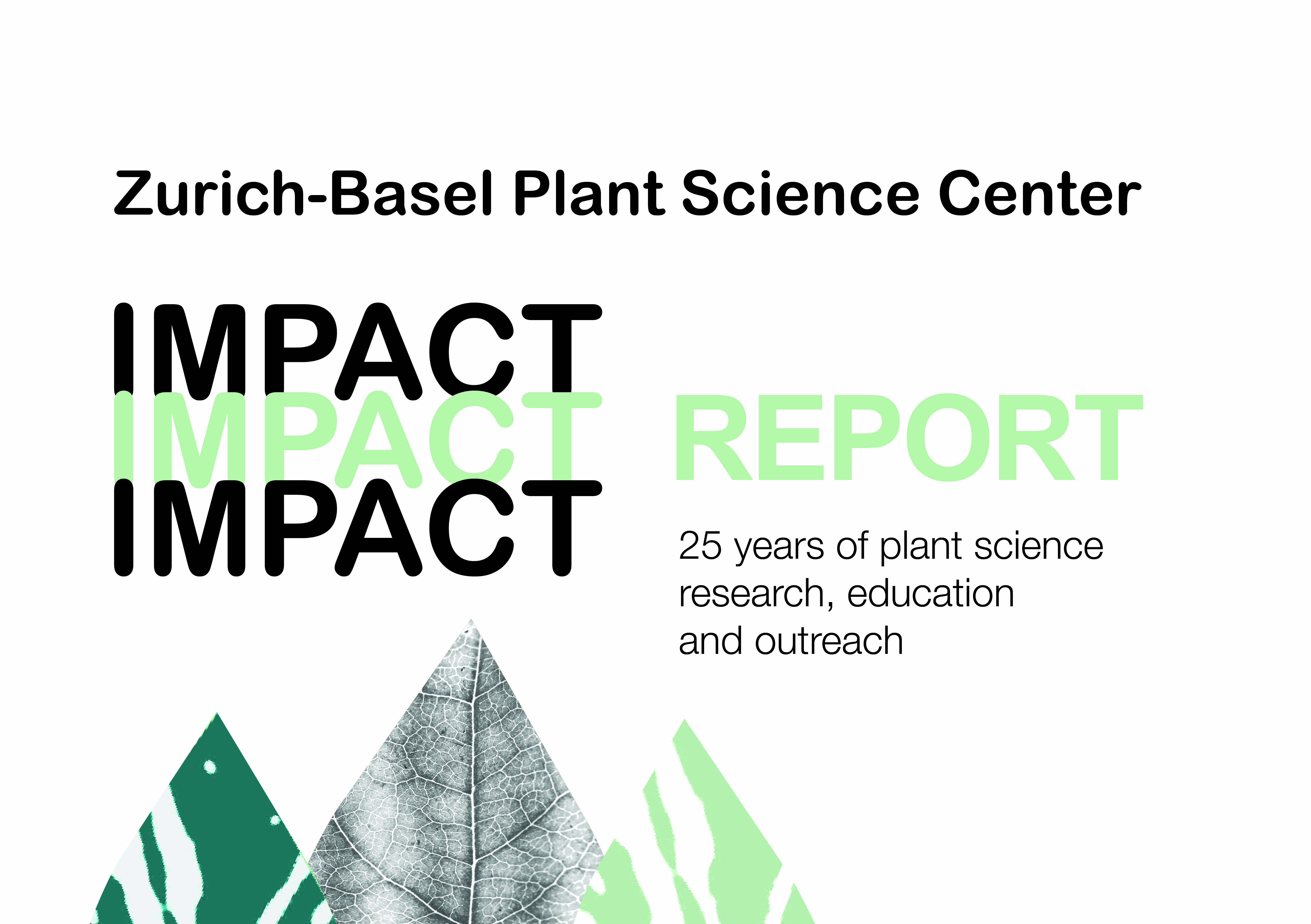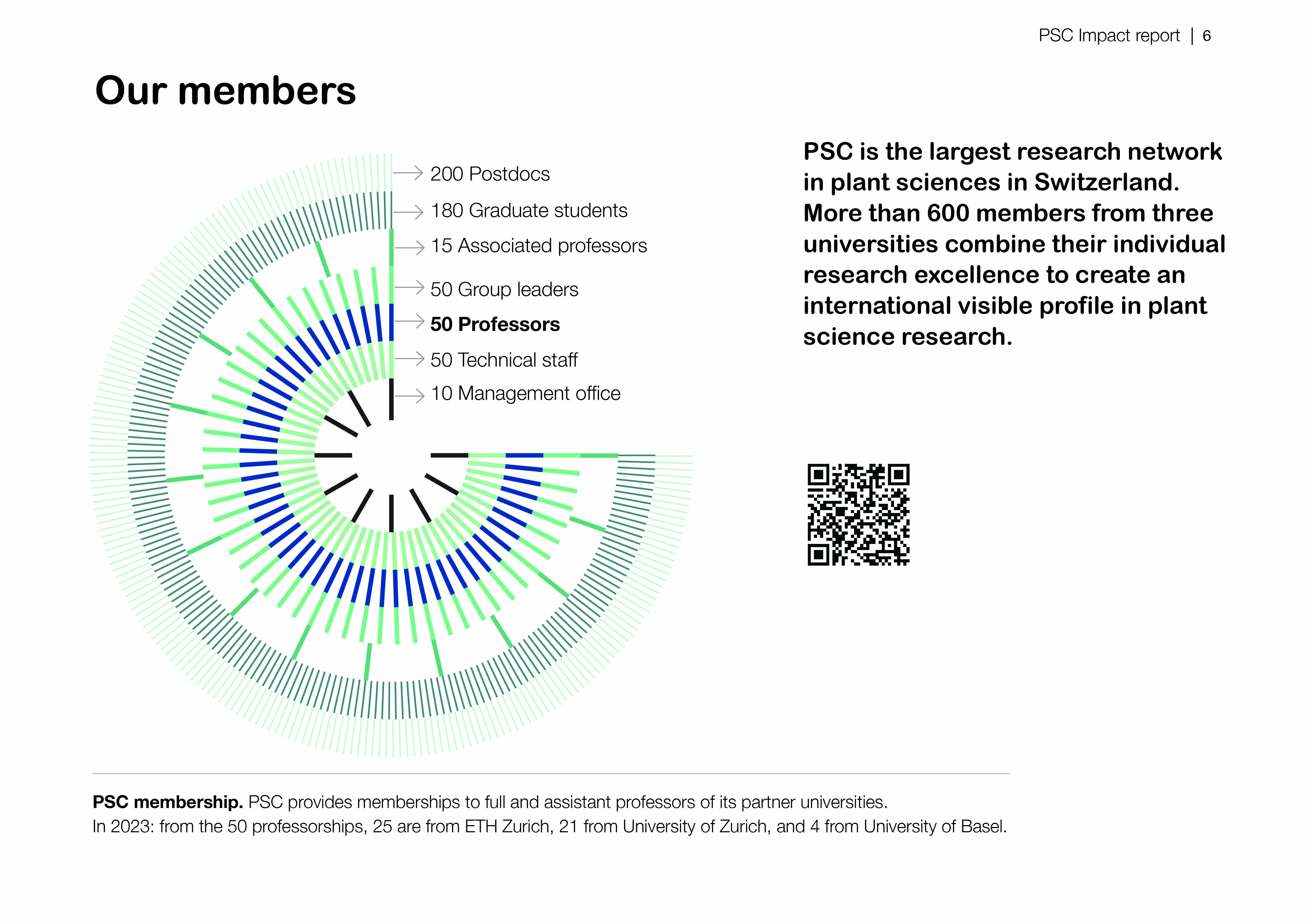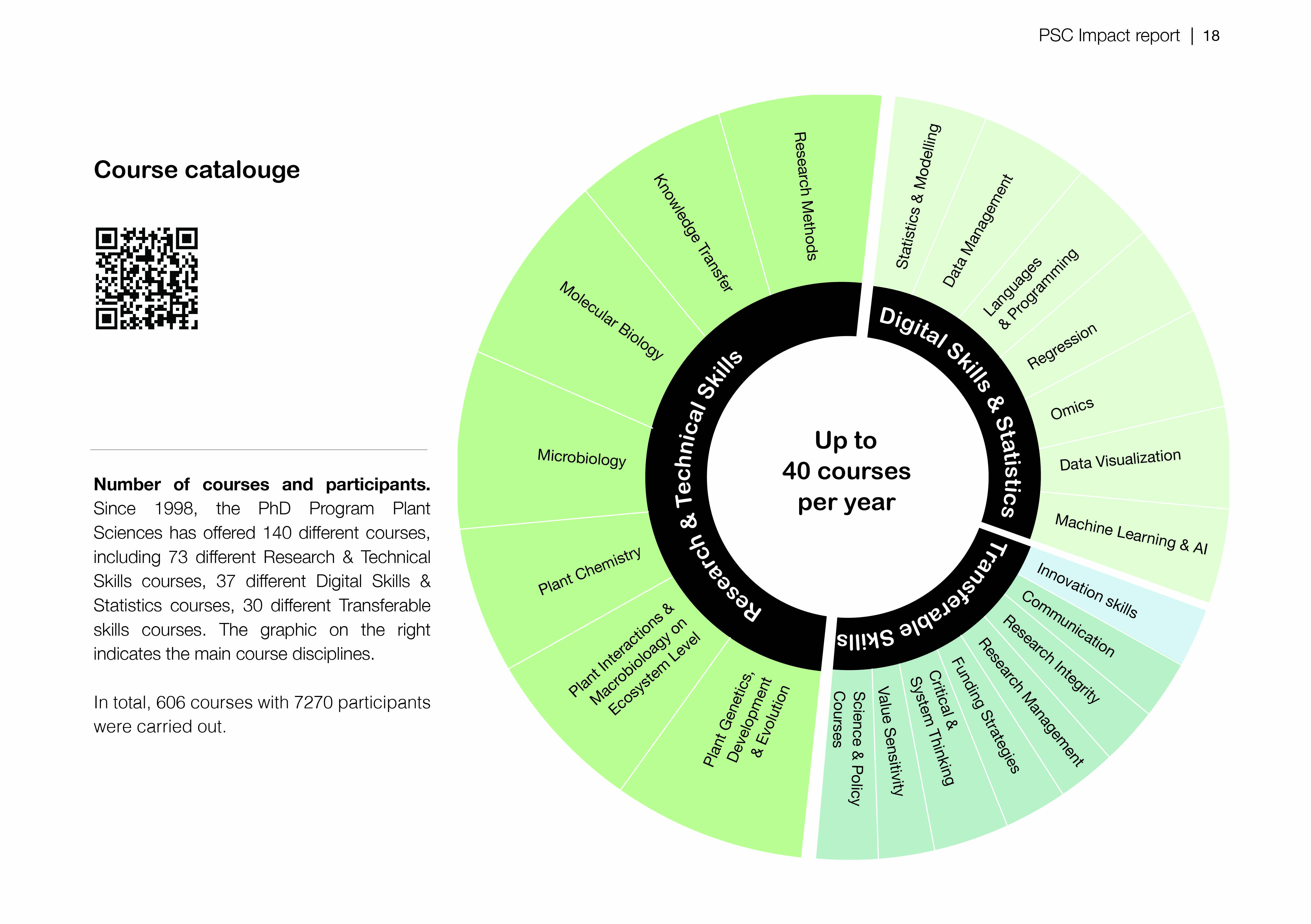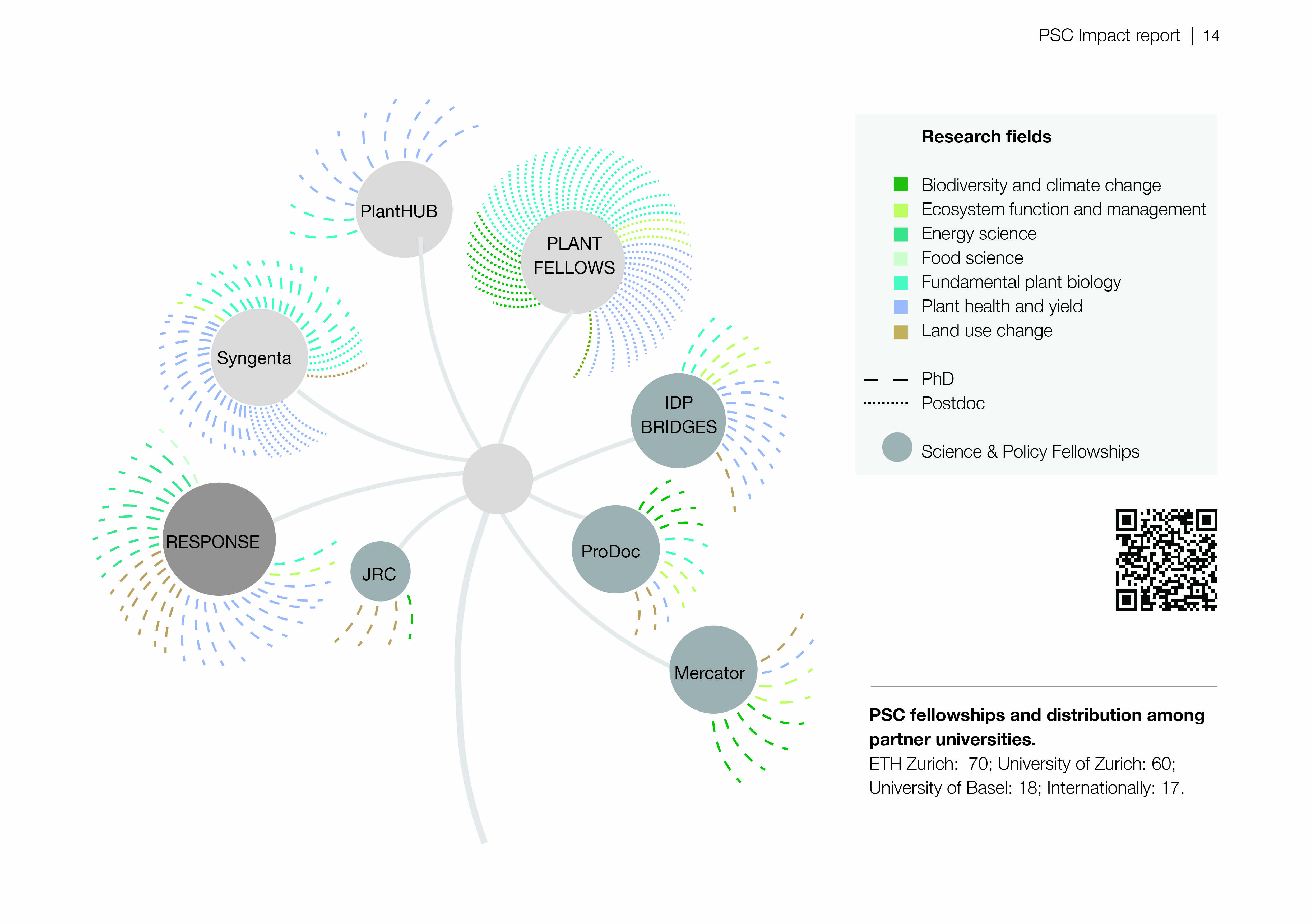Impact report
Since it was launched 25 years ago, the Zurich-Basel Plant Science Center (PSC) has contributed significantly to the field of plant sciences. By creating a highly visible platform, and through our innovative collaborations in research programmes, fellowships and educational offering, we show the profound impact that plant sciences can have. PSC facilitates interdisciplinary collaboration and bridges the gap between scientific knowledge and society. This brochure showcases our role in higher education and dynamic research environments, presenting a selection of PSC’s successful endeavours. We hope you enjoy reading about them.
PSC Impact report (2023). 25 years of plant science research, education and outreach. Manuela Dahinden and Melanie Paschke (eds.). Zurich-Basel Plant Science Center, Zurich.
https://www.research-collection.ethz.ch/handle/20.500.11850/645000
History
The Zurich-Basel Plant Science Center (PSC) was founded as a competence center by ETH Zurich and the University of Zurich in 1998. The PSC helped prioritize new professorships, so that all the disciplines of plant sciences, from ecology and systematics to agronomy and molecular biology, are now represented. The University of Basel joined the PSC in 2002. In 2009, the PSC initiated the Swiss Plant Science Web, a national network of plant science researchers from all Swiss universities, to strengthen interactions among plant scientists and to increase the visibility of plant science research.
In 2002, the PSC PhD Program in Plant Sciences was launched and now offers more than 40 different courses per year. In 2010, PSC started its PhD Program in Science and Policy, through which students acquire tools for evidence-based policymaking. More than 100 doctoral students completed this PhD program so far, 66 are currently enrolled and apply their knowledge in targeted internships with policy-implementing organisations. The program is open to doctoral students from all disciplines including environmental, agricultural, climate, earth, engineering, energy, food and life scientists since 2015.
The PSC engages with the public and stakeholders addressing the importance and contributions of plant science research to global challenges such as climate change, biodiversity loss and food security. In 2005,Dialog Green was initiated as a platform to discuss ecological, social and economic implications of new technologies. Those conferences receive high recognition in political and public event series. The PSC regularly organizes public round table discussions. Scientists and experts from federal agencies, NGOs and private organizations debate policy-relevant topics such as climate change and biodiversity loss. The Plant Science at School program offers school class workshops and training for teachers interested in bringing current topics of plant science research into their classroom.
PSC has initiated and managed several fellowship programs. The programs funded 165 PhD students and postdoctoral researchers. Most of the fellowship programs are Marie Skłodowska-Curie Actions – the European Union’s reference programme for doctoral education and postdoctoral training. From 2003 to 2024, Syngenta supported 46 doctoral and postdoctoral researchers. In 2012–2016, the PSC coordinated PLANT FELLOWS, a unique international postdoc fellowship program in plant sciences. 20 international organisations served as hosts for almost 60 postdoctoral researchers.



